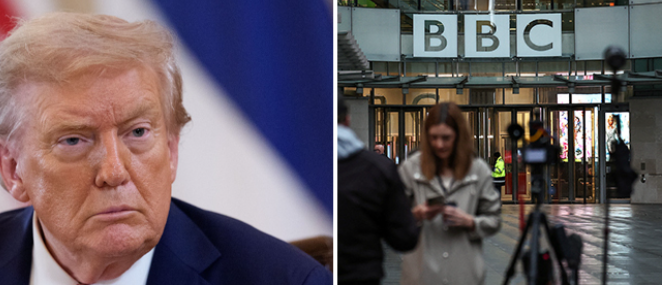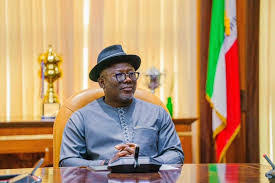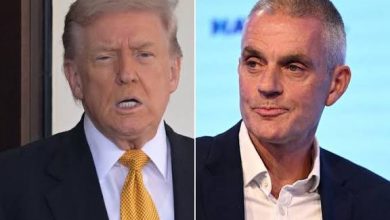BBC apologises over edited Trump speech amid resignations of top executives

The BBC issued a public apology on Monday after editing a documentary segment that suggested former U.S. President Donald Trump had made “a direct call for violent action” prior to the January 6, 2021, Capitol attack.
The broadcaster described the edit as “an error of judgment,” acknowledging the significant public and political backlash it triggered.
The controversy escalated over the weekend, culminating in the resignation of two senior executives. BBC Director-General Tim Davie and BBC News CEO Deborah Turness stepped down amid criticism of the corporation’s handling of the documentary, which has reignited longstanding debates over the broadcaster’s impartiality and editorial standards.
In a letter addressed to Members of Parliament, BBC chairman Samir Shah confirmed that the segment’s editing “did give the impression of a direct call for violent action.”
Shah apologised for the error and pledged reforms to strengthen oversight and restore public trust in the publicly funded organisation.
The White House reacted with relief and satisfaction, with former President Trump praising the resignations while accusing BBC journalists of being “corrupt” and “dishonest.”
His press secretary labelled the broadcaster as “100 per cent fake news.” Meanwhile, the UK government struck a more measured tone.
A spokesperson for Prime Minister Keir Starmer stressed the importance of the BBC as a reliable source of information in an era of widespread disinformation, while urging the corporation to act swiftly to maintain public confidence.
The controversy comes at a politically sensitive moment, as the UK government prepares to review the BBC’s charter, which sets out the broadcaster’s governance and funding structure.
The current charter is set to expire in 2027. Funded primarily through a licence fee on households watching live television, the BBC has faced years of financial strain, resulting in hundreds of job cuts and increased scrutiny of its editorial decisions.
Responses to the resignations have been mixed.
Some see them as a necessary reckoning for one of the world’s most respected public broadcasters, while others caution that the episode highlights growing pressures from right-wing critics abroad.
Karen Fowler-Watt, a former BBC journalist and head of journalism at City St George’s University, described the broadcaster as “now really in a situation of crisis” and warned against the political framing of the debate as a right-wing attack.
In the political arena, reactions were similarly divided.
Former Conservative Prime Minister Boris Johnson previously threatened to stop paying his licence fee in protest, while current Tory leader Kemi Badenoch welcomed the departures, citing a “catalogue of serious failures.”
Ed Davey, leader of the Liberal Democrats, urged the government to protect the BBC from undue foreign interference, noting the global influence and credibility of the institution.
The controversy centered on a documentary covering Trump’s actions on January 6, 2021.
The edited footage appeared to show the former president encouraging supporters to march on the Capitol, suggesting an imminent call to violence.
In reality, the original clips included a statement urging the crowd to “walk with me” and support lawmakers, without advocating for aggression.
This is not the BBC’s first high-profile misstep. Earlier this year, the broadcaster apologised for serious flaws in a documentary about Gaza that the UK’s media regulator found “materially misleading.”
It also faced criticism for not pulling a livestream of punk-rap duo Bob Vylan at Glastonbury after the frontman made anti-Israel comments.
On the streets of central London, reactions to the scandal were varied.
Jimmy, a construction worker, told AFP that the BBC’s reputation had been “tarnished” and its impartiality questioned.
Jennifer Kavanagh, a 78-year-old writer, argued that the broadcaster has “always been attacked from the right and from the left” and that scrutiny is a constant challenge for such a prominent institution.
The incident has added fuel to debates over media bias and the responsibilities of publicly funded broadcasters, particularly as the BBC approaches the next phase of its charter review.



